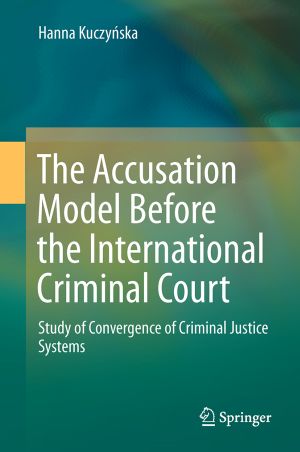
This book examines how the functioning of the International Criminal Court has become a forum of convergence between the common law and civil law criminal justice systems. Four countries were selected as primary examples of these two legal traditions: the United States, England and Wales, Germany and Poland. The first layer of analysis focuses on selected elements of the model of accusation that are crucial to the model adopted by the ICC.
These are: development of the notion of the prosecutor's independence in view of their ties to the countries and the Security Council; the nature and limits of the prosecutor's discretional powers to initiate proceedings before the ICC; the reasons behind the prosecutor's choice of both defendants and charges; the role the prosecutor plays in the procedure of disclosure of evidence and consensual termination of proceedings; and the determinants of the model of accusation used during trial and appeal proceedings. The second layer of the book consists in an analysis of the motives behind applying particular solutions to create the model of accusation before the ICC.
It also shows how the model of accusation gradually evolved in proceedings before the military and ad hoc tribunals: ICTY and ICTR. Moreover, the question of compatibility of procedural institutions is addressed: In what ways does adopting a certain element of criminal procedure, e.g. discretional powers of the prosecutor to initiate criminal proceedings, influence the remaining procedural elements, e.g. the existence of the dossier of a case or the powers of a judge to change the legal classification of the criminal behavior appearing in the indictment?